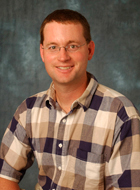Ogmius Exchange Part IV
Closing Thoughts: Excerpt from Overheated Claims, National Post by Roger Pielke, Jr.
 Lost in the Manichean debate over climate change is the real significance of what climate models really are telling us: We should act on climate mitigation and adaptation not because we are able to predict the future, but because we cannot. The academic literature, far from public view, contains a much more realistic perspective on the uncertain predictive capabilities of climate models. Oxford University’s David Frame and colleagues, all climate modelers, explain that “Rather than seeing models as describing literal truth, we ought to see them as convenient fictions which try to provide something useful.”
Lost in the Manichean debate over climate change is the real significance of what climate models really are telling us: We should act on climate mitigation and adaptation not because we are able to predict the future, but because we cannot. The academic literature, far from public view, contains a much more realistic perspective on the uncertain predictive capabilities of climate models. Oxford University’s David Frame and colleagues, all climate modelers, explain that “Rather than seeing models as describing literal truth, we ought to see them as convenient fictions which try to provide something useful.”
They are useful because the predictions from models suggest that the climate patterns experienced in the past century or so may not be a useful guide to the future — but exactly how change might occur is uncertain. Ten years ago Simon Shackley and his colleagues warned that “The impression that climate change can be so predicted and managed is not only misleading, but it could also have negative repercussions should policy makers act on this assumption.” By this they meant that “the societal perception that the ‘climate change problem’ is being adequately handled could inhibit the emergence of, and support for, creative social, policy and economic responses to the challenge of coping with a possibly inherently unpredictable system such as climate.”
The reality is that the future state of the climate is uncertain, and as such it represents a type of risk management problem. In 2002 Steve Schneider, a climate scientist at Stanford University and long-time advocate for action on climate change, explained “uncertainties so infuse the issue of climate change that it is still impossible to rule out either mild or catastrophic outcomes.” Combatants in the climate debate congregate around the extremes, emphasize either mild or catastrophic outcomes as is convenient and overstate the certainty of such outcomes.
Effective action on climate change is more likely when we fully appreciate what science can, and cannot, do.
Roger Pielke, Jr.
CIRES/University of Colorado
pielke@colorado.edu
For another recent evaluation of climate models, also see the new CCSP Synthesis and Assessment Report 3.1 "Climate Models: An Assessment of Strengths and Limitations".

